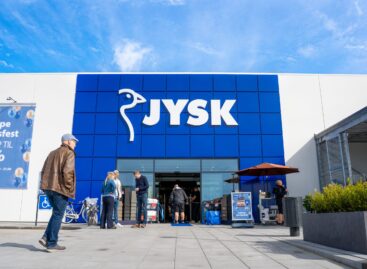KPMG CEO Outlook 2024: the secret of success lies in creating general crisis resistance
72 percent of CEOs of large global companies continue to trust economic growth, although the proportion of optimists has steadily decreased in the 10-year history of the survey, from a level of 93 percent in 2015, according to the KPMG 2024 CEO Outlook research.Among the biggest risks to growth, geopolitical and political uncertainties are no longer in first place, as they were last year; supply chain challenges and operational issues precede these and cybersecurity issues.
Company managers believe in the future of their organization despite the global political and economic crisis symptoms, and they expect not only an increase in their incomes, but also in the number of employees: 92 percent of them want to increase their total workforce in the next three years – and this is the highest percentage since 2020. The good news is that according to three-quarters of company managers, artificial intelligence will not have a negative impact on the number of employees at the company, which is ranked first among future developments by two-thirds of those surveyed. At the same time, 83 percent of executives now predict that in three years the company will fully return to office work, compared to 64 percent in 2023.
CEOs are increasingly sensitive to the outside world, ESG thinking has become a part of their everyday life, and three quarters of them said that they would be willing to sell a profitable part of the business if it harms the company’s reputation.
In the KPMG CEO Outlook 2024 research, it asked CEOs of more than 1,300 companies with at least USD 500 million in annual sales in the world’s most important markets about how they see their company’s business and economic prospects in the next three years, and the trends that determine them.
As in the previous two years, the company managers assessed the growth prospects of the world economy and their own company favorably this year. 72 percent of the surveyed CEOs are optimistic about global economic growth in the next 3 years, and their perception of their own company’s performance prospects is well expressed by the fact that 92 percent of them expect an increase in the number of employees in the same time period.
The CEOs’ optimism primarily reflects their opinion about their own company’s markets. But they acknowledge that sustaining growth is now under more pressure than before: the biggest engines of global growth are faltering; recession fears are expressed from time to time in the United States, while Europe is showing signs of a downturn in many industries, and Chinese growth is two-faced. According to the research, the respondents feel this on their skin: 72 percent admitted that they are under increasing pressure to ensure the long-term prosperity of their business. External pressure and internal challenges such as workforce training and hybrid working force them to be agile and adaptable, while keeping long-term growth in mind.
Among the risks, the leaders of global companies have now put damage and vulnerability of supply chains in the first place. Recently, there has been an increase in incidents related to this: global shipping is hindered by accidents, company bankruptcies and terrorist attacks, but a strike by port workers or an unfolding customs war can also cause huge losses. Operational issues came in second, and cyber security came in third, followed only by geopolitics and other political risks. Senior managers do not see the risk in the – typically remote – conflicts themselves, but in their impact on their own company. However, they believe that their bodies are able to respond to them properly. Sensing the expectations, the CEOs stand for the need to invest in the future.
Related news
Cheese-cocoa-peach jam: these are the most popular cookie flavors
🎧 Hallgasd a cikket: Lejátszás Szünet Folytatás Leállítás Nyelv: Auto…
Read more >Hungarians don’t replace their furniture – JYSK research reveals a conscious, long-term planning market
🎧 Hallgasd a cikket: Lejátszás Szünet Folytatás Leállítás Nyelv: Auto…
Read more >Related news
(HU) Átadták a SIRHA Budapest 2026 Innovációs Termékverseny díjait
🎧 Hallgasd a cikket: Lejátszás Szünet Folytatás Leállítás Nyelv: Auto…
Read more >How does the forint exchange rate affect consumer prices?
🎧 Hallgasd a cikket: Lejátszás Szünet Folytatás Leállítás Nyelv: Auto…
Read more >HELL CITY has arrived, led by Michele Morrone
🎧 Hallgasd a cikket: Lejátszás Szünet Folytatás Leállítás Nyelv: Auto…
Read more >









